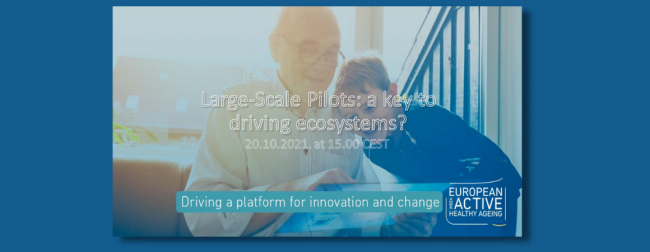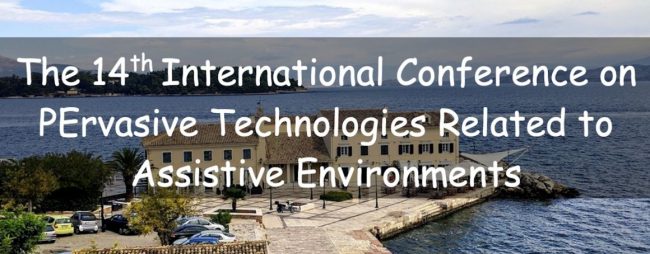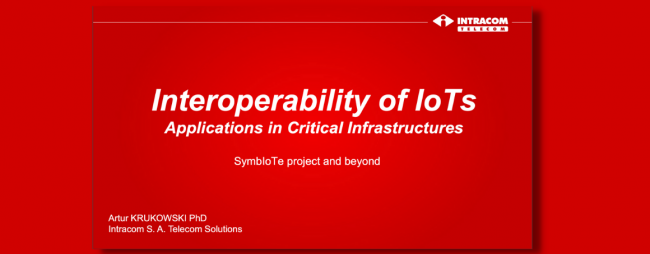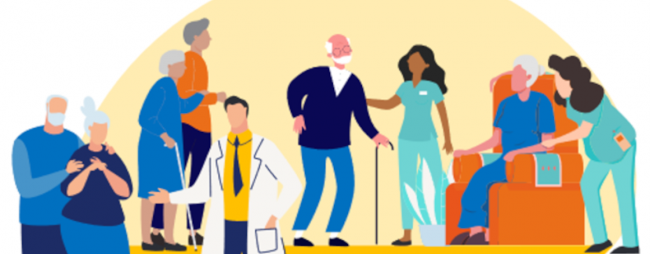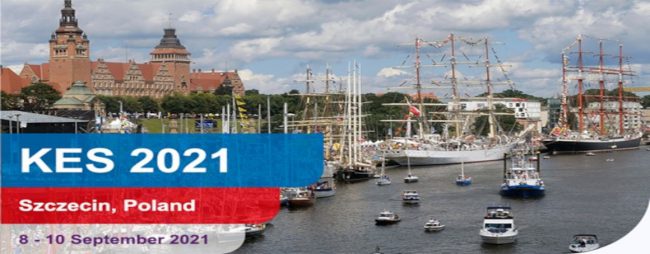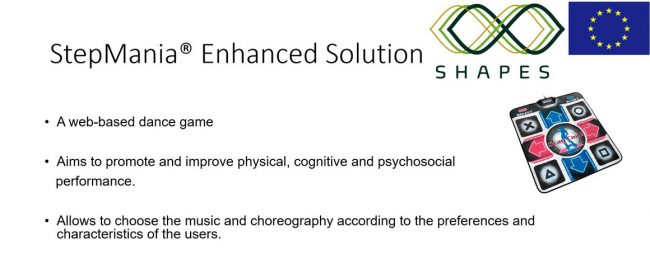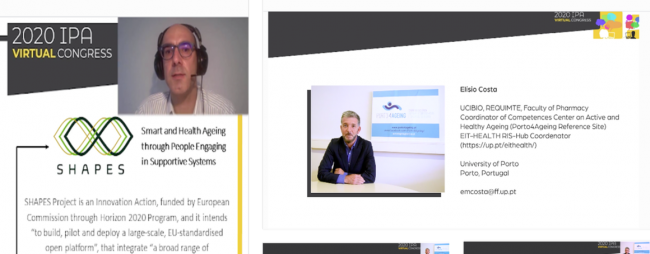SHAPES RESEARCHERS CHAIRING INVITED SESSION AT KES 2021 CONFERENCE
Vicomtech and Universidad de Castilla – La Mancha are thrilled to co-chair an invited session at the KES 2021 conference set to take place in Szczecin, Poland from the 8th to the 10th of September 2021. The session will focus Supportive Innovative Systems for the Smart, Healthy and Active Ageing at Home and in Local Community Environments (SSHLC) and a call for paper is open.
United Nations declares 2021-2030 the Decade of Healthy Ageing
The UN Resolution follows recent endorsement of the Decade by the World Health Assembly, and calls upon the World Health Organization to lead the implementation of the Decade, in collaboration with the other UN organizations.
The UN sees population ageing as one of the most significant social transformations of the twenty-first century, with implications for nearly all sectors of society. The global population aged 65 and over is growing faster than all other age groups. In the UK alone the Office for National Statistics projects that in 50 years’ time, there are likely to be an additional 8.6 million people aged 65 years – a population roughly the size of London.
“Today’s announcement of the UN Decade of Healthy Ageing sends a clear signal that it is only by working as one, within the United Nations system and with governments, civil society and the private sector, that we will be able to not only add years to life, but also life to years,” said Dr Tedros Adhanom Ghebreyesus, Director-General of the World Health Organization.
According to WHO: “Fostering Healthy Ageing requires fundamental shifts – not just in the actions we take, but in how we think and feel towards age and ageing. This involves establishing a shared understanding of what success will look like; developed through a process of multi-stakeholder engagement, collective dialogue and co-creation.”
A political priority
Given the increasing needs of society following Covid-19, the design of age-friendly communities is becoming a top political priority. This could boost the construction of more sustainable multigenerational neighbourhoods, incorporating innovative support system that foster healthy ageing.
With mounting evidence that multi and/or intergenerational contact is beneficial for people of all ages, Paul Quinn, Director of Regeneration for Clarion Housing Group, Europe’s largest social landlord, believes the UN should highlight age segregation in housing, which he says is arguably as important a challenge as our response to the climate emergency.
“By enabling people, including those coping with long term physical and mental conditions, to live extended lives in supportive and safe homes and environments, we can help residents to stay active and independent members of society while living in communities they love.”
Transforming lives and communities for the better
There is clearly an urgent need to reimagine our neighbourhoods of the future. Operating at the core of Europe’s largest housing association, ‘Clarion Futures’ is delivering one of the UK’s largest social investment programmes, investing £150 million over 10 years to provide the tools and support people need to transform their lives and communities for the better.
During the past 12 months Clarion has been engaged in a cross-business working group to ensure its communities are places where residents can age positively; a strategy which has involved collaboration with the Agile Ageing Alliance (AAA).
As many readers will know, AAA is a long standing advocate for multigenerational housing and neighbourhoods of the future, which shift the emphasis from planning for “the elderly,” or retirement communities, to a more inclusive approach for everyone, supporting ageing in place and serving as a viable alternative to age-specific care in institutional settings.
Following the AAA ISO Leaders Forum earlier this year, AAA and Clarion have joined forces with the ISO Committee on Ageing Societies and a coalition of leading practitioners committed to pooling resources, sharing data and know-how and informing the creation of an ISO gold standard for multigenerational living, in smart future proofed neighbourhoods.
Leading by example
January 28th 2021 we will regroup in a collaborative effort to address the Decade of Healthy Ageing, with specific reference to the built environment societal challenge. While there are plenty of one-off homes designed to meet the needs of older adults and/or people suffering from dementia. There are few examples of those homes being built at scale, and even fewer examples of whole neighbourhoods being designed with such principles at their heart. We will reveal plans to co-create multiple examples of both; interconnected living test beds, that will help to define the essence of best practice – at an unprecedented scale.
The objective is to construct “no fuss” mixed tenure neighbourhoods, where young and old, disabled and able, can co-exist in well-designed technologically enabled housing, with access to bespoke services to help facilitate independent living and enhance wellbeing.
Clarion’s Regeneration team are currently identifying suitable sites where these principles can be embedded from day one, in both the design and operation of neighbourhoods and homes. We are actively seeking partners and like-minded organisations to bring their own particular skillset to bear in terms of built environment, design, place-making, public health and care, mobility, technology and research.
Orchestrating effective coordination of regional, national and international interventions, this ground-breaking collaborative R&D initiative aims to establish what ‘good looks like’. To break the the tyranny of uniformity and reset the drift towards care based on separation. To reimagine neighbourhoods where people of all ages and abilities can live alongside one another in environments that enhance wellbeing, happiness and quality of life.
Get involved
If you are responsible for planning, finance, asset management, infrastructure, sustainability, tenant engagement, procurement, governance and compliance, or research, you are welcome to join the next AAA ISO Leaders Forum 28.01.2021. Made possible by Clarion, here you will meet coalition partners, find out how to get involved, and learn, discuss, engage with peers and expert speakers. Follow this link to register.
With best wishes for a very healthy and prosperous New Year.
Article Author:
“Experts Evaluation of Usability for Digital Solutions Directed at Older Adults: a Scoping Review of Reviews” communication in DSAI 2020
UAVR will be presenting a communication entitled Experts Evaluation of Usability for Digital Solutions Directed at Older Adults: a Scoping Review of Reviews in the 9th International Conference on Software Development and Technologies for Enhancing Accessibility and Fighting Info-exclusion (DSAI 2020) that will take place on December 2-4 2020.
The DSAI conference aims to bring together leading academic scientists, researchers and research scholars and provides a premier interdisciplinary platform to present and discuss the most recent innovations, trends, and concerns, as well as practical challenges, encountered and solutions adopted in the fields of Software Development and Technologies for Enhancing Accessibility and Fighting Info-Exclusion.
The accepted paper describes and synthesizes the procedures of usability evaluation by experts that are being reported to conduct inspection usability assessments of digital solutions relevant for older adults.
More information available at:http://dsai.ws/2020/
SHAPES project presentation in the X Iberian Seminar on Psychogerontology
The SHAPES project was presented on the X Iberian Seminar on Psychogerontology and III Iberian Seminar on Social and Community Gerontology, which took place on 12 and 13 November 2020. In this 45-minute communication, the SHAPES project was presented with a special focus on the pilot with the StepMania® dance game for seniors. In the presentation, some results already achieved within the scope of the project were also disclosed.
More information available at: https://odeaipbeja.wixsite.com/seminario2020
SHAPES project presentation in CAMAD 2020
SHAPES project was presented during the “IEEE International Workshop on Computer Aided Modeling and Design of Communication Links and Networks” (CAMAD), 14-16 September 2020 // Virtual Conference due to the presentation of the paper entitled “Modified Machine Learning Techique for Curve Fitting on Regression Models for COVID-19 projections“, with the following abstract:
Corona Virus Disease 2019 (COVID-19) is a disease caused by Severe Acute Respiratory Syndrome Corona Virus 2 (SARS-CoV-2) and was first diagnosed in China in December, 2019. Dr. Tedros Adhanom Ghebreyesus, World Health Organization (WHO) director-general on March 11th declared the COVID-19 pandemic. The cumulative cases of infected individuals and deaths due to COVID-19 develop a graph that could be interpreted by an exponential function. Mathematical models are therefore fundamental to understanding the evolution of the pandemic. Applying machine learning prediction methods in conjunction with cloud computing to such models will be beneficial in designing effective control strategies for the current or future spread of infectious diseases. Initially, we compare the trendlines of the following three models: linear, exponential and polynomial using R-squared, to determine which model best interprets the prevailing data sets of cumulative infectious cases and cumulative deaths due to COVID-19 disease. We propose the development of an improved mathematical forecasting framework based on machine learning and the cloud computing system with data from a real-time cloud data repository. Our goal is to predict the progress of the curve as accurately as possible in order to understand the spread of the virus from an early stage so that strategies and policies can be implemented.
Read the full paper at: https://ieeexplore.ieee.org/abstract/document/9209264
Paper citation:
A. Andreas, C. X. Mavromoustakis, G. Mastorakis, S. Mumtaz, J. M. Batalla and E. Pallis, “Modified Machine Learning Techique for Curve Fitting on Regression Models for COVID-19 projections,” 2020 IEEE 25th International Workshop on Computer Aided Modeling and Design of Communication Links and Networks (CAMAD), Pisa, Italy, 2020, pp. 1-6, doi: 10.1109/CAMAD50429.2020.9209264.
SHAPES researchers speaking about SHAPES on 2020 IPA Virtual Congress
The “International Psychogeriatric Association” (IPA) congress took place on the 2nd and 3rd October 2020, and researchers from SHAPES, Porto4Ageing and CINTESIS lectured on digital health solutions for physical and mental healthy ageing.
The symposium, moderated by Professor Elísio Costa, was composed of three researchers: Soraia Teles, Luís Midão, and Pedro Rocha, and each of them presented digital health tools or methodologies focused on healthier ageing, both for older persons and caregivers.
Soraia Tele’s presentation was about an innovative tool – iSupport for dementia – designed to prevent or minimize the negative psychological effects of informal care provision. Luis Midão talked about electronic and mobile Hhalth, which are becoming prominent components of healthcare, and can be crucial to tackle frailty issues. Lastly, Pedro Rocha presented the role of evaluation on large scale health pilots, and its importance for funders, credibility and to improve conclusions and scale-ups.
The theme of the congress, which was held completely online, was “Mental health for people of Old Age in a rapidly changing world”. The entities that compose the symposium are all focused on tackling challenges related to healthier ageing so, their contribution to the event was very relevant since they enabled attendees insight knowledge on technology and methods that can improve digital solutions for different stakeholders on the process of ageing.

